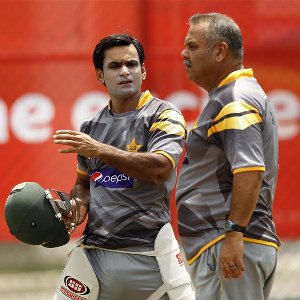How to Become a Cricket Coach

Over the previous two decades, cricket has changed immensely, with a number of scientific methods being introduced in the way a team approaches the game. Just like many other changes, the role of a coach has become extremely important, although some of the former cricketers opine that international players do not require a lot of guidance.
Over the years, the world of cricket has witnessed a number of extra-ordinary coaches, who have brought about significance changes in their respective teams. Today, coaches are a part and parcel of domestic teams as well, and are very highly paid.
Instructions
-
1
Understanding of the game
In order to become a cricket coach, you must have insight and understanding of the game. You will be expected to make better decisions using your expertise and formulate match-winning strategies.
To enhance your cricketing intellect, you must do a lot of research about the latest coaching methods and developments in the game. You should study the history of the game thoroughly to understand how it has evolved over the decades. Consult sporting books and websites, which can help you with statistics and records. -
2
You should have playing experience
John Buchanan, the former Australian coach, is considered to be one of the most successful coaches in the history of the game as the Kangaroos became the world’s best team under his mentorship, winning three ICC Cricket World Cups on the trot. He never played professional cricket. However, he is an exception and if you want to be a successful coach, you should ideally have first-hand experience of the game.
Gary Kirsten, the former South African cricketer and current coach, is a brilliant example of this as he has helped India as well as his native country become the number one ranked Test teams. -
3
Coaching courses
Cricket coaching has become a complete profession now and you have to be qualified to take up an important assignment. There are three major steps for becoming a fully qualified coach, Level 1, Level 2 and Level 3.
Start coaching from the grass-root level as it will help you know the psyche of players and how to handle a cricket team. Gradually move up the ranks towards senior teams. However, your progress as a professional coach depends on the performances of the teams and the players you have coached.







